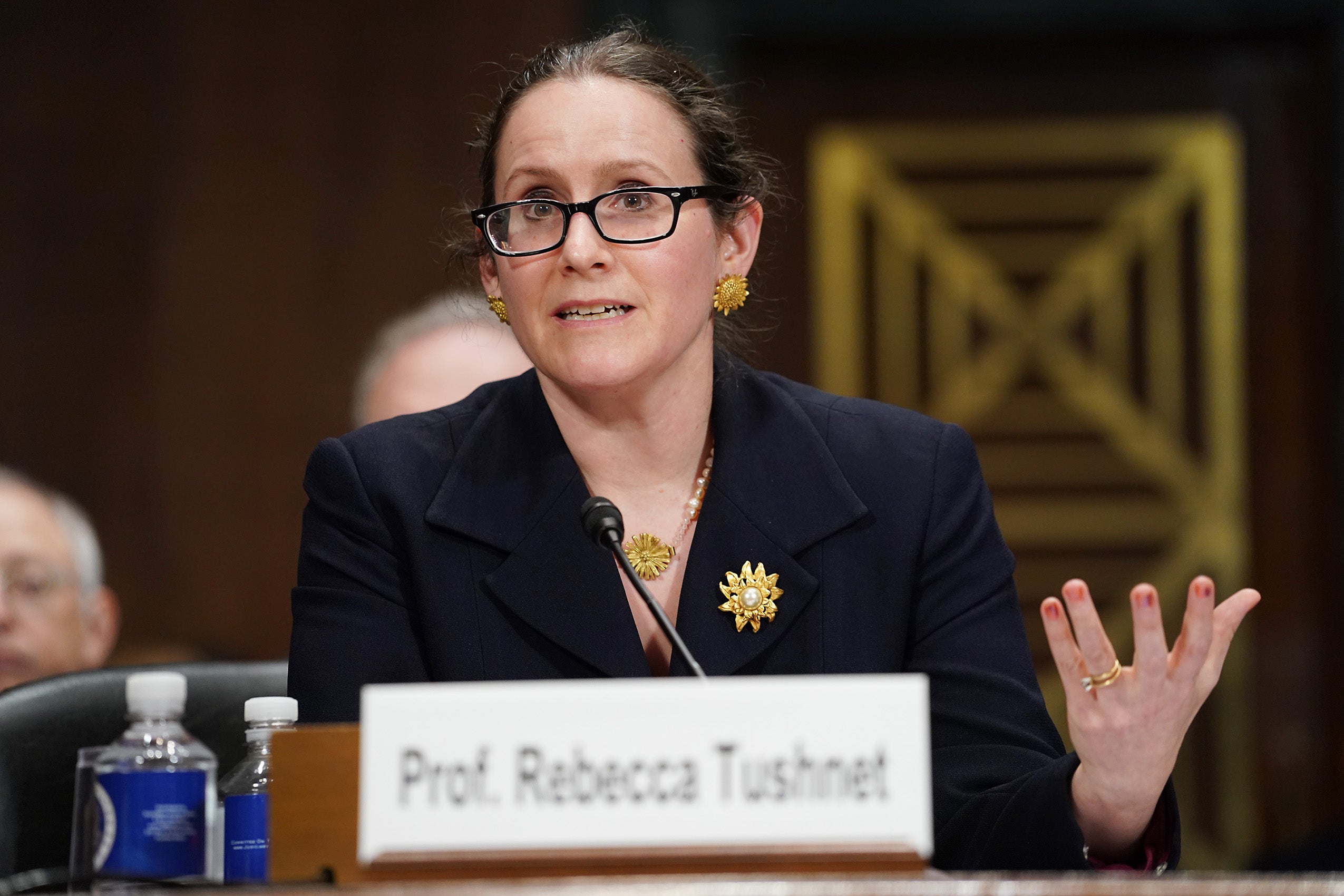Rebecca Tushnet, the inaugural Frank Stanton Professor of the First Amendment at Harvard Law School and a director of the Berkman Klein Center for Internet and Society, testified before the U.S. Senate Committee on the Judiciary’s Subcommittee on Intellectual Property on Feb. 11 on “The Digital Millennium Copyright Act at 22: What is it, why was it enacted, and where are we now?”
The Digital Millennium Copyright Act was enacted in 1998 to address the issue of copyright infringement on the internet, in particular, the liability of internet service providers for copyright infringement by their users. The act criminalized both the production and dissemination of technology, devices, or services intended to circumvent “access control” technologies (otherwise known as digital rights management), and the practice of circumvention itself.
Tushnet’s testimony focused on two sections of the DMCA: Section 512 —commonly known as the “safe harbor” provision, which exempts internet service providers from copyright infringement liability; and Section 1201, the “anti-circumvention” provisions which, according to Tushnet, have had unintended consequences such as “prevent[ing] diabetics from getting information from their own medical devices and researchers from investigating security vulnerabilities in voting machines.”
In her testimony, Tushnet emphasized that any changes to Section 512 would have devastating effects on small and medium businesses that receive relatively few DMCA notices compared to Facebook or Google, but that must spend an inordinate amount of time and limited resources dealing with (often fraudulent) claims on their content.
“Empirical research reveals that most of the internet service providers who rely on Section 512 are receiving relatively low levels of notices and handling them individually,” said Tushnet. “While market pressures and business decisions have led a few large sites like YouTube to more filter-based systems, it is important not to treat YouTube as a model for the internet at large—unless the only online service we want to survive is YouTube.
“Most service providers don’t need and can’t get expensive filtering technology. A mandate for that … would destroy the small and medium entities that are vital to innovation, creativity, and competition on the internet.”
A leading scholar of copyright, trademark and false advertising law, Tushnet’s many publications include “Registering Disagreement: Registration in Modern American Trademark Law” (Harvard L. Rev. 2017); “Worth a Thousand Words: The Images of Copyright Law” (Harvard L. Rev. 2012); and “Copy This Essay: How Fair Use Doctrine Harms Free Speech and How Copying Serves It” (Yale L.J. 2004).
In 2012, Tushnet also self-published an electronic casebook (now in its fourth edition) with Eric Goldman on advertising and marketing law (the first of its kind on the topic), and she has a forthcoming book on images in intellectual property law.
Watch Rebecca Tushnet’s testimony (starts at approx. 1:30:00)
